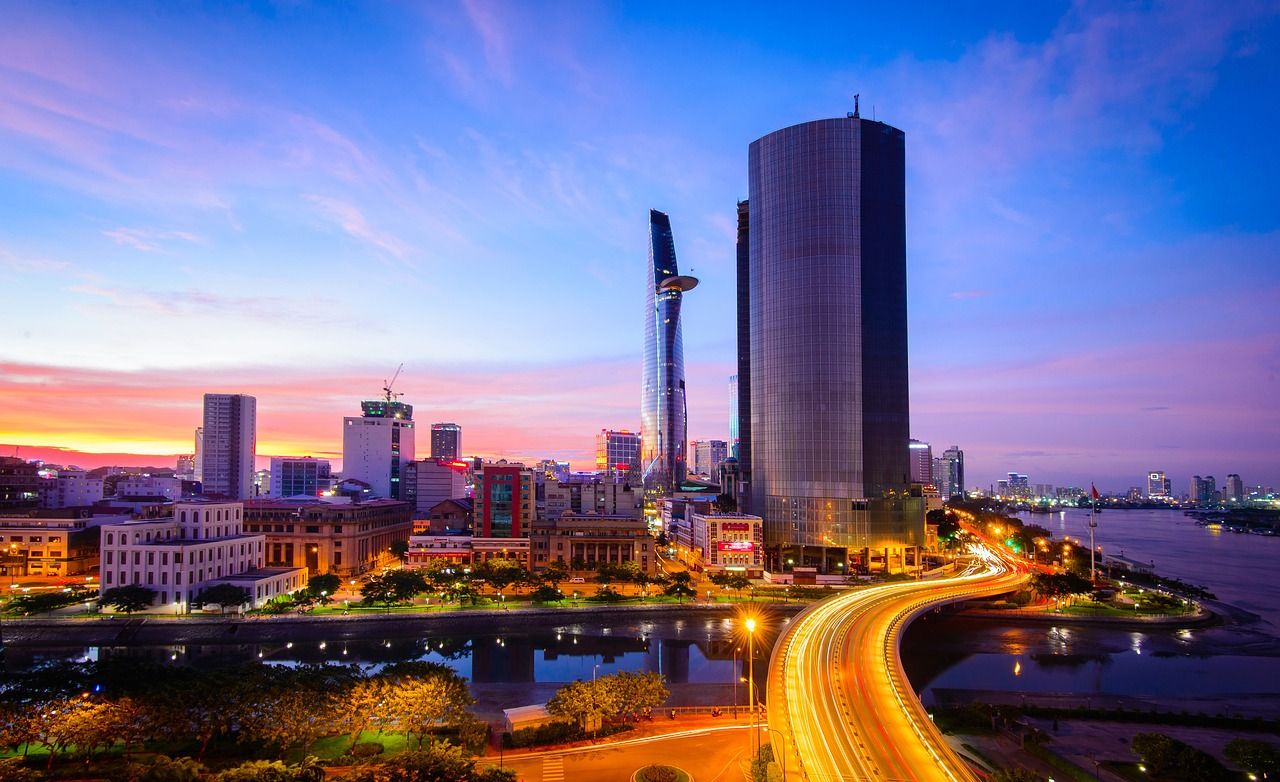For some time, it has been clear the baton of economic growth would pass from China, but it was not always clear who would carry it forward
While interest rates and inflation have been the driving forces for markets in 2023, in the longer term, the shift in the geopolitical landscape may prove more significant. In particular, the changes within emerging markets could change the sources of world growth over the next decade.
There has been some rapprochement between Presidents Xi and Biden in recent weeks. A recent meeting saw them forge agreements on fentanyl trafficking, military communications and, perhaps less significantly, pandas. Cynics might suggest that both sides are trying to ease the economic pain of trade restrictions, ready to resume them once their economies are in better shape. However, it is clear the freeflow of goods, technology and intellectual property is unlikely to resume.
Major countries are increasingly being forced to take sides. For the UK and much of Europe, there can be no doubt that they need to follow the US, against Russia and China. However, smaller countries may be able to play both sides, which gives them a compelling path to economic growth.
Geopolitical tension
Emily Fletcher, manager of the BlackRock Frontiers investment trust, says they notice this in a lot of the smaller emerging market countries in which they invest. She adds: “We’ve obviously seen a lot of geopolitical tension across the world in recent years. There is East, West and those who abstain, those countries that are trying to sit somewhere between the two. This puts them in an advantageous position to receive foreign direct investment.”
A lot of these countries are seen as neutral from a manufacturing standpoint. She adds: “We are seeing a lot of manufacturing moving out of China. A lot of these smaller countries represent the neutral ground, allowing them to attract Chinese companies would want to move their manufacturing, but also Western companies. They have very poor populations and supporting their economic development would be in line with the West’s aims for global development.”
She admits that some of these countries are better than others at forging this middle ground. She believes the Middle East may be a strong beneficiary: “The housing markets in the UAE, Abu Dhabi and Dubai are already seeing an impact. That’s partly because they stayed open through Covid, but Dubai in particular is emerging as a financial centre for that region.”
Playing both sides
Vietnam has been another country showing itself adept at playing both sides. President Biden visited the country in September, emerging with a “comprehensive strategic partnership” with the communist government. However, Vietnam also has long-standing ties to Russia, built during the Soviet era. In October, Putin accepted an invitation to visit Vietnam, though a date has been elusive. President Xi visited the country in December, his first visit for six years, in an attempt to sustain China’s influence there. This is seen as ‘bamboo diplomacy’ – the ability to bend with the wind, manoeuvring between competing powers without taking sides.
The most obvious manifestation of this success for Vietnam is in its ability to hoover up manufacturing moving out of China. Ngo Thanh Thao, deputy portfolio manager of Vietnam Enterprise Investments, says: “Vietnam has really benefited from China plus one. Big companies have been moving to the country. Every year it receives around US $22bn in foreign direct investment. Recently, with the visit from Joe Biden, our relationship with the US has been upgraded. This opens the possibility for Vietnam to enter the semiconductor business in the medium term.”
This should create a virtuous circle for Vietnam, creating capital for infrastructure building. She adds: “Every year, the government is spending around $30bn in new airports, new ring-roads, new highways to improve the backbone of the whole economy. Today, the middle class is around 30% of the population. This is a key support for consumer growth.” Urbanisation is also a factor. It is China’s playbook, but at an earlier stage.
India’s scale
Of the larger companies, India appears to be the only large economy successfully playing both sides. At a forum in June, Putin talked of, “our friends in India and our big friend, Prime Minister Nahrendra Modi,” while praising the country’s economic innovations. India has continued to be a major buyer of Russian fossil fuels in spite of sanctions put in place by the US and Europe. In May, Russia accounted for 46% of India’s oil imports.
Yet Modi continues to court the US. He had a four-day state visit there in June and the US is now India’s top trading partner, with trade between the two nations now worth $130bn. Both sides believe there is more to go for, and India is now spending huge sums to ensure it is a top choice for international manufacturers moving out of China. The Indian government offers tax benefits, subsidies, and streamlined regulatory procedures to attract foreign direct investment and promote domestic manufacturing. It also has the advantage of significant scale that Vietnam and similar countries can’t match.
For the Latin American countries the decision is more nuanced. Countries such as Mexico can only really take advantage of shifting supply chains by aligning more closely with the US, so may not have the option of neutrality. Countries in Eastern Europe may also benefit from ‘nearshoring’, but are unlikely to play both sides in the same way.
For some time, it has been clear that the baton of economic growth would pass from China, but it was not always clear who would carry it forward. The countries in prime position to grow from here are likely to be those that successfully navigate an increasingly polarised world.







